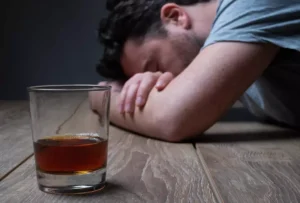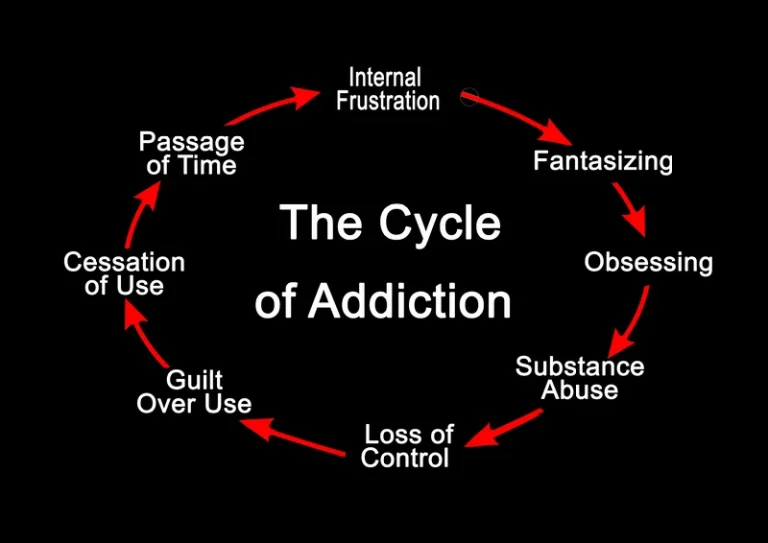
But if you use it too often or take too much, you might notice some effects when you stop. Alternative treatments may not be as successful in offering relief as a treatment program, and many people relapse without medical and psychiatric support. Specific pharmaceutical agents, notably buprenorphine, are available to counter the symptoms of withdrawal how long do amphetamines stay in your system from opioids, such as heroin, oxycodone, and fentanyl. Abruptly stopping benzodiazepines or heavy alcohol use can be dangerous, even life-threatening, and medical supervision is widely recommended. Stopping moderate alcohol use or opiates, and immediately precipitating withdrawal, is extremely unpleasant but not generally physically dangerous.

Nationally Accredited Behavioral Health Programs
Dose titrations during this study were based on the subjects’ clinical response to the medication. No medication other than mirtazapine was used according to the study report. In another study (Cruickshank 2008), participants were administered 15 mg of mirtazapine on the first two nights and 30 mg mirtazapine every night for the next 12 nights. In all four studies (Srisurapanont 1999b; Jittiwutikan 1997, Kongsakon 2005; Cruickshank 2008), the treatment duration was 14 days. To assess the effectiveness of pharmacological alone or in combination with psychosocial treatment for amphetamine withdrawals on discontinuation rates, global state, withdrawal symptoms, craving, and other outcomes. Few studies examined treatments for amphetamine withdrawal, although it is a common problem among amphetamine users.
- We publish material that is researched, cited, edited and reviewed by licensed medical professionals.
- Psychologically, amphetamines can produce a feeling of euphoria, increased motivation, and a sense of heightened focus.
- If one of our articles is marked with a ‘reviewed for accuracy and expertise’ badge, it indicates that one or more members of our team of doctors and clinicians have reviewed the article further to ensure accuracy.
- Experts report that some people may benefit from antidepressant medications as they complete the withdrawal process.
Amphetamine Withdrawals
In summary, there are currently no available medications that have been demonstrated to be effective in the treatment of amphetamine withdrawal. The severity of withdrawal symptoms is greater in amphetamine dependent individuals who are older and who have more extensive amphetamine use disorders (McGregor 2005). Withdrawal symptoms typically present within 24 hours of the last use of amphetamine, with a withdrawal syndrome involving two general phases that can last 3 weeks or more. The first phase of this syndrome is the initial “crash” that resolves within about a week (Gossop 1982; McGregor 2005).
- Those can range from trying to grin-and-bear through the withdrawal period to attempting to manage the symptoms with natural and over-the-counter concoctions.
- Amphetamine withdrawal occurs commonly among amphetamine users and has clinical relevance as the symptoms may prompt relapse to amphetamine use as a means of symptom relief.
- Dextroamphetamine withdrawal symptoms can be controlled by coming off of the drug gradually and under the supervision of a healthcare provider.
- At FHE, we are committed to assisting you in making progress towards a new life free from the grips of addiction.
- Amphetamines also work well at treating conditions involving ADHD, narcolepsy and obesity.
- Your brain is essentially craving amphetamines at this point since it’s used to having them in your system.
Alcohol and Other Substance Misuse
Withdrawal, like addiction itself, reflects the capacity of the brain to adapt to experience. When that substance is suddenly stopped, those nerve pathways are caught short. In the weeks and months after substance use is stopped, the brain rewires itself to essentially reverse the adaptations it made to the substance and return to normal, but that process takes time. In the short haul, fear of the unpleasantness of withdrawal often keeps people using a substance even when they want to stop. Of the four studies that met the inclusion criteria, two studies compared amineptine with placebo (Jittiwutikan 1997; Srisurapanont 1999b) and two studies compared mirtazapine with placebo (Kongsakon 2005; Cruickshank 2008). Amineptine is an atypical tricyclic antidepressant that selectively inhibits the reuptake of dopamine and norepinephrine.
Amphetamines can make people feel more alert, and are prescribed for problems like depression and attention deficit order. Amphetamines can produce euphoria, and so are manufactured for recreational use. Ongoing use can lead to dependence, which can be as hard to recover from as dependence on heroin or cocaine. The only randomized trials of amphetamine withdrawal agents have been of antidepressant drugs (amineptine and mirtazapine). Amineptine was found to have limited benefits, showing improvement only on some subjective effects but is no longer on the market because of concerns over its abuse liability. One rationale guiding selection of medications for amphetamine withdrawal involves using a medication to stabilize dopamine, norepinephrine or serotonin neurotransmission to provide relief from withdrawal symptoms.
Withdrawal Symptoms

It works by boosting certain chemicals in the brain to enhance focus, alertness, and energy. There is mixed evidence suggesting that abruptly quitting smoking—especially with supportive therapy—is more effective than gradual cessation. Nicotine withdrawal peaks at 3-5 days after stopping, Cravings, headache depression, irritability, mental fog, and increased appetite are common symptoms—unpleasant but not usually dangerous. Abruptly stopping use of opiates such as heroin is generally considered extremely unpleasant but not life-threatening.
How long they last inside the body depends on several factors, including age, weight, dosage and more. Amphetamine use actually causes an initial spike in the creation of the natural hormones epinephrine and norepinephrine which is followed by a lowered production of these naturally occurring hormones over time. The result is a physical dependence that the body develops on amphetamines to cause this spike in the development of naturally occurring hormones to make the individual feel good or feel pleasure. These variables contribute to the variability in detection times in drug tests and the duration amphetamine stays in the system.
How Long Does Amphetamine Withdrawal Last? – Contributing Factors
When considered likely to meet inclusion criteria, studies were translated. At FHE, we are committed to assisting you in making progress towards a new life free from the grips of addiction. A benzodiazepine may be prescribed to regulate anxious feelings, but take these with caution as they have the potential to be addictive. During the acute withdrawal stage, you will likely experience hypersensitivity and agitation.

References to other published versions of this review
- Drug testing tools use urine, blood, saliva or even hair to detect drug use.
- Because amineptine has similar mechanism of actions as amphetamines, it was put forth that amineptine could help to relieve amphetamine withdrawal symptoms.
- The truth of the matter is, if you’re only using occasionally and still experience withdrawal episodes, there’s a good chance occasional use will evolve into frequent or more regular use over time.
- Withdrawal starts after the active drug is cleared from the body (measured as “half-life,” the amount it takes for blood levels of the drugs to drop by 50 percent).
Drug cravings can be fierce, and fear of withdrawal symptoms often drives continued drug use. Withdrawal is a constellation of aversive symptoms—ranging from anxiety, tremors (“the shakes”), and nausea to hallucinations and frank seizures—brought on by the sudden stoppage or dosage drop of long-term drug use. It is the clinical manifestation of abrupt cessation of a substance of abuse. All randomised controlled and clinical trials evaluating pharmacological and or psychosocial treatments (alone or combined) for people with amphetamine withdrawal symptoms.

